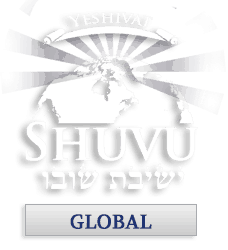וַיָּ֥זֶד יַֽעֲקֹ֖ב נָזִ֑יד וַיָּבֹ֥א עֵשָׂ֛ו מִן־הַשָּׂדֶ֖ה וְה֥וּא עָיֵֽף: יֹּ֨אמֶר עֵשָׂ֜ו אֶל־יַֽעֲקֹ֗ב הַלְעִיטֵ֤נִי נָא֙ מִן־הָֽאָדֹ֤ם הָֽאָדֹם֙ הַזֶּ֔ה כִּ֥י עָיֵ֖ף אָנֹ֑כִי עַל־כֵּ֥ן קָֽרָא־שְׁמ֖וֹ אֱדֽוֹם: וַיֹּ֖אמֶר יַֽעֲקֹ֑ב מִכְרָ֥ה כַיּ֛וֹם אֶת־בְּכֹרָֽתְךָ֖ לִֽי: וַיֹּ֣אמֶר עֵשָׂ֔ו הִנֵּ֛ה אָֽנֹכִ֥י הוֹלֵ֖ךְ לָמ֑וּת וְלָֽמָּה־זֶּ֥ה לִ֖י בְּכֹרָֽה: וַיֹּ֣אמֶר יַֽעֲקֹ֗ב הִשָּׁ֤בְעָה לִּי֙ כַּיּ֔וֹם וַיִּשָּׁבַ֖ע ל֑וֹ וַיִּמְכֹּ֥ר אֶת־בְּכֹֽרָת֖וֹ לְיַֽעֲקֹֽב:
Now Jacob cooked a pottage, and Esau came from the field, and he was faint. And Esau said to Jacob, “Pour into [me] some of this red, red [pottage], for I am faint”; he was therefore named Edom. And Jacob said, “Sell me as of this day your birthright.” Esau replied, “Behold, I am going to die; so why do I need this birthright?” And Jacob said, “Swear to me as of this day”; so he swore to him, and he sold his birthright to Jacob.
Genesis 25:29-33
As with much of the book of Genesis, this week’s parsha contains a pivotal moment in history. Esau returns from a day of tracking and hunting and encounters Jacob cooking a lentil stew, red lentils, to be specific.
Esau tells Jacob to “pour into me” the red stuff, because Esau was tired and hungry. This idea of “pour into me” is explored in B. Shabbat 155b. Force-feeding animals on Shabbat is prohibited. However, “pouring into them” all they care to eat is allowed. Jacob responds with a condition, that Esau sell him his birthright. It is important to note that the condition here is that Esau will sell Jacob his birthright, the condition is not the sale itself. In other words, is not implied that the price of the birthright is a bowl of red lentils, nor is it implied that if Esau agrees to sell Jacob his birthright, Jacob will feed him. The actual price of the birthright is not mentioned in the text. Midrash Rabbah explains that it is a fair price, more than the value of a bowl of lentils.
Esau’s response to the idea of selling his birthright is that he simply does not care. The birthright is not important to him. He is a Hunter, who roams over an area tracking game. It is Jacob who is the farmer, it is he who values a field to grow food. For Esau, ownership of a field is simply an encumbrance. Consequently, Esau does not value the land, nor Hashem’s promise of the land. This despising of the birthright is a major differentiation between Jacob and Esau, Israel and Edom, even today. Shabbat shalom.
